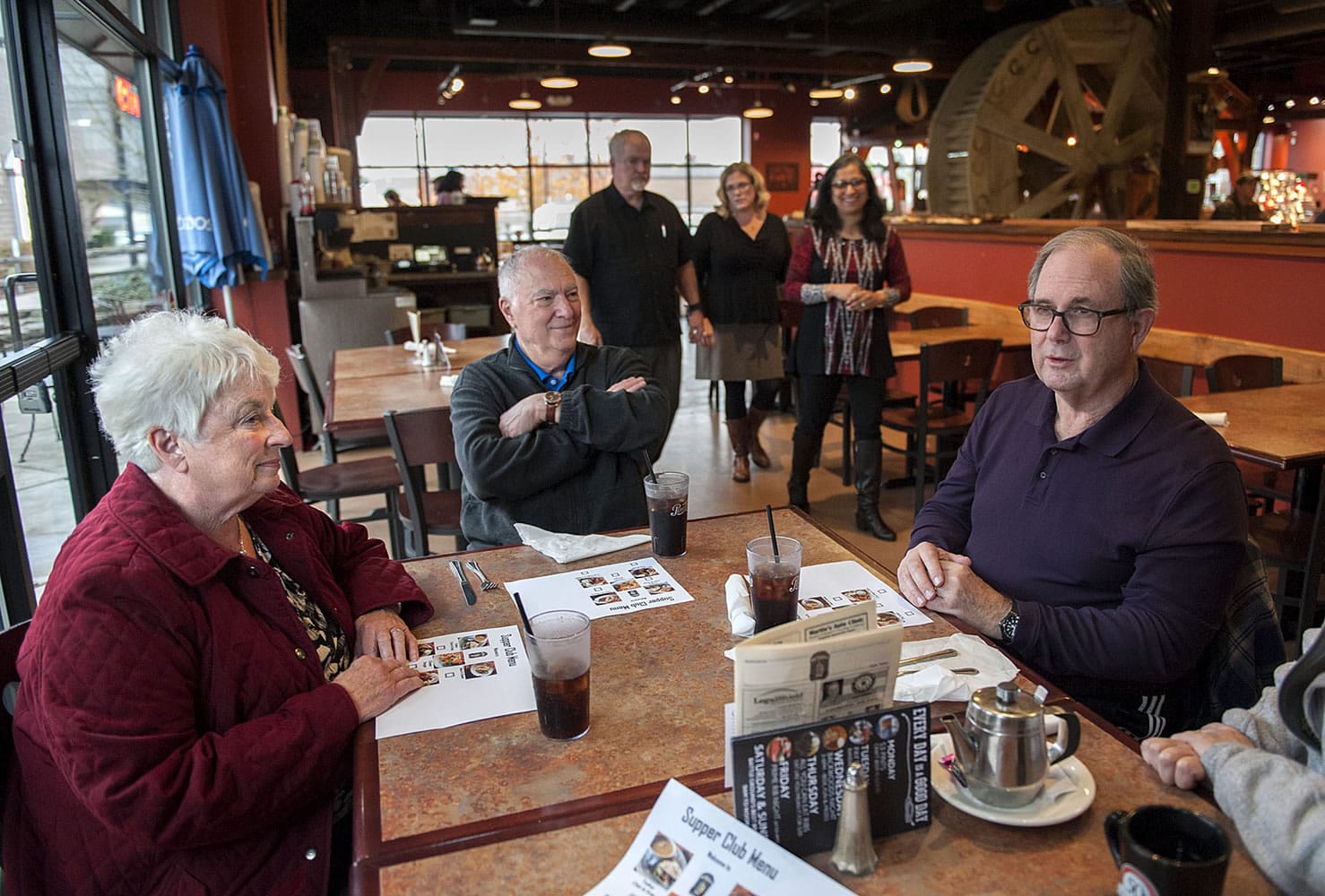BATTLE GROUND — I’ll have the mac ‘n’ cheese, please. And along with my meal, I’d like to have a heaping helping of dignity.
No customers ordered in quite that way Wednesday afternoon at Russell Brent’s Mill Creek Pub. They didn’t have to, because dignity was the dish served with every interaction between the waitstaff and the diners with dementia.
They came to Mill Creek Pub, along with spouses and caretakers, for the trial run of its new Supper Club, a 90-minute gathering of people with Alzheimer’s disease or any other condition associated with dementia.
A few weeks earlier, the staff received basic training in how to serve people whose short-term memory and physical abilities may be anywhere from faltering to gone, and whose emotions may veer from perfectly content to unaccountably upset. If the latter happens, Julie Williams of Home Instead Senior Care told them, try changing the subject. Try complimenting their sweater, or asking about their favorite foods or even talking about the weather. Or just try apologizing for whatever it is, even if you’re not actually responsible for anything amiss.




